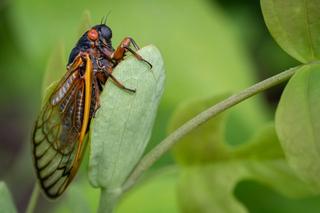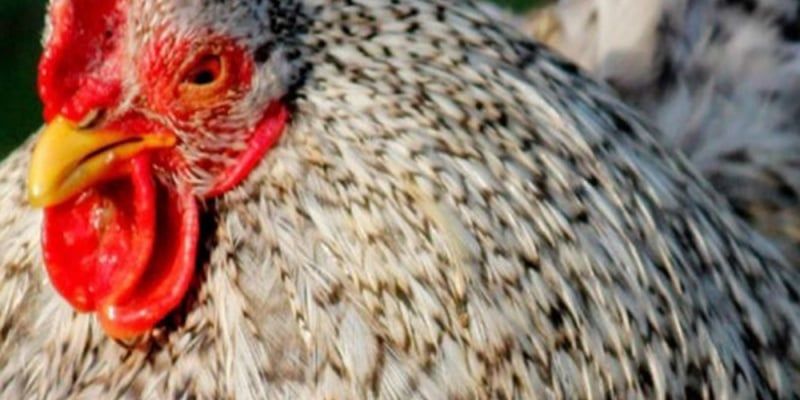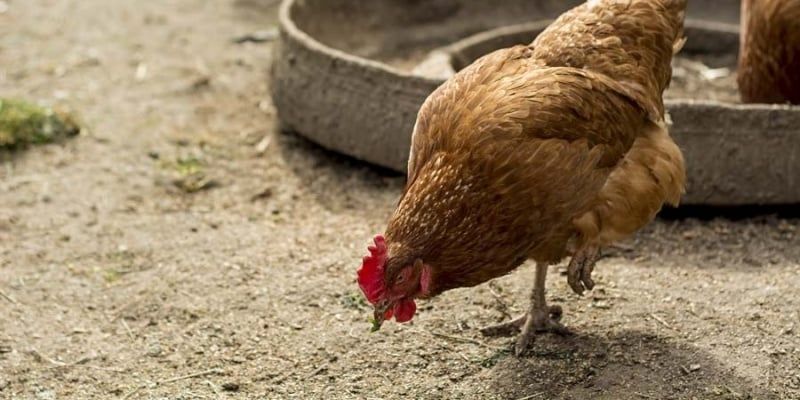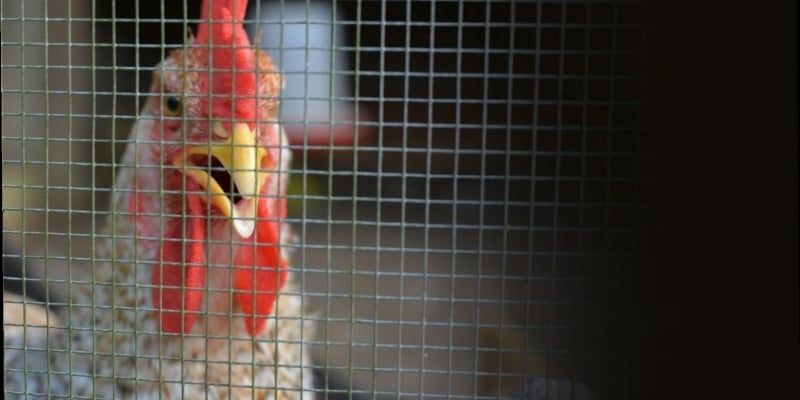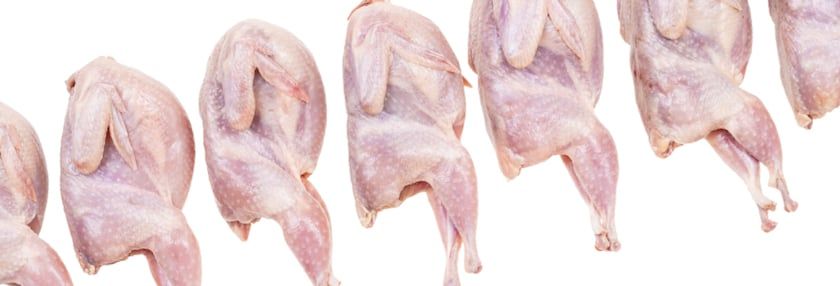Biosecurity Basics
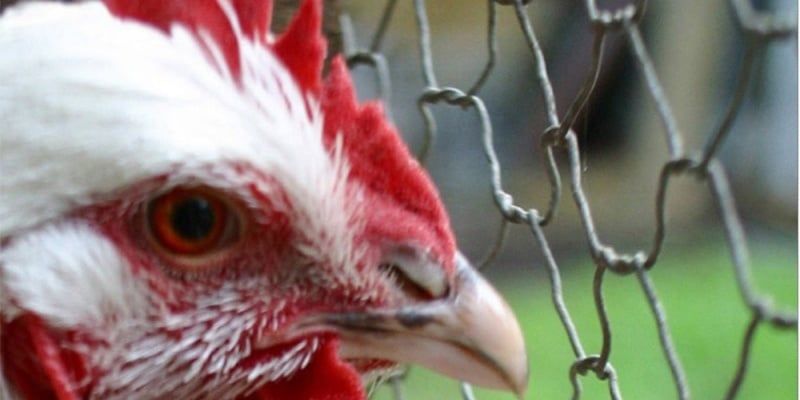

Strategies for your flock
"Everybody hates me, nobody likes me/I think I’ll go eat worms!" So goes the first line of the old bus-ride song, "Nobody Likes Me." And it echoes the way people feel about poultry biosecurity—nobody likes being lectured on the topic, while others outright resist learning about it. Thankfully, I don’t know of anyone who has given up to go eat worms.
Some people think biosecurity takes all the fun out of keeping chickens. So why do folks think that biosecurity is so darned horrible?
First of all, most people don't understand the premise behind biosecurity. It's simply a series of steps put in place to keep infectious agents out. Everybody tries to do this in the first place, right? I don't know of a single small-flock owner who relishes the thought of a vet bill for their chickens, or perhaps the need to put down a member of their flock because of disease.
And you don't need to be a commercial chicken producer to practice effective biosecurity. In fact, you, as small flock owners, have a huge advantage: Your flocks are smaller, giving you more control over what comes into contact with your birds than larger commercial operations.
There are three basic parts to good biosecurity: isolation, traffic control, and sanitation. You chose to raise chickens, and you love them to pieces, so now is the time to implement the biosecurity measures that give your flock the safety they deserve.
Isolation
This means keeping your germs on your property. Don’t kid yourself—you know they're there. The goal is to keep your germs away from your neighbors' flock (along with keeping your neighbor's germs away from yours). Most small-flock owners don't share equipment, but if you ever do, then that equipment should be thoroughly disassembled, cleaned, and disinfected. Don’t want to go that far? Easy—never share equipment.
Along the lines of keeping your flock isolated, don't allow your birds to come into contact with other chickens or other chicken owners, a task easy enough for most small flock owners. If you like to show chickens, then you will need to quarantine your birds for three weeks after a show before allowing them to come into contact with the rest of your flock. What about coop tours? That's precisely why most reputable coop tours require step-through foot baths and disposable boot covers before entering the properties in an effort to keep germs from moving from one property to another.
Isolation also refers to keeping your flock away from the three main vectors—or carriers—of disease: wild birds, rodents, and insects. All three of these organisms have track records of causing disease in chickens.
Another culprit: Did you know that a single rodent feces can potentially contain hundreds of thousands of Salmonella bacteria? It can, underlining why we want to prevent rodents from coming into contact with your chickens.
Certain strains of Salmonella have been known to take up residence in chickens before passing through the yolk of a fully formed egg.
Lots of people state that one of the main reasons why they have chickens is for insect control. However, insects are significant sources of certain diseases, especially parasites. So, unless you are willing to do regular testing of your flock for the presence of harmful organisms, consider curtailing their insect intake.
Some people say, "I'll just worm them regularly…" And problem solved. That's the same thing sheep and goat folks have been doing for the past 40 years, and look at their current plight: Medications no longer work precisely because they have relied on prophylactic deworming treatments for so long. Backyard chicken owners are at greater risk because there is only one over-the-counter (sold without a prescription) product available, whereas the sheep and goat folks had several products to choose from before their effectiveness began to wane.
Traffic control
Keep other chicken owners off of your property, especially if their chickens have had any sort of infections in the last year or two. If you need a petsitter, make sure they are not sitting for any other bird owners—including pet-bird species like canaries and parrots. While some people find chickens irresistible, you may need to bar their access to your flock if they have been around other birds within the past three days. To help accomplish this, put up signs, gates, and locks. Gates and locks help direct people to your front door so that you can decide if you need to protect your flock from them. Signs help explain why there is a lock or a gate with a foot bath.
The best sign I've seen? “We love our chickens dearly and want to keep them healthy. So we ask you to come to the house or call our cell phone (XXX) XXX-XXXX and ask our permission before visiting our chickens.”
It may be as simple as directing them to your foot bath, along with a sign outlining specific instructions on how to use it properly. Alternately, you could keep disposable boot covers for guests to use when they come to visit.
Make sure to ask your visitors questions like “Do you have any pet birds or chickens at home?” and “When was the last time one of your birds was sick?” Be prepared to say "Sorry, but I can't let you in," if they have had a problem. It’s hard to do, but it may just save your birds' lives.
When you move around on your own property, remember to move from the youngest birds to the oldest—and never the other way around. If you don't feel like doing this on a daily basis, then make your life simpler: Keep one flock of birds that are all the same age. When that flock is no longer laying, find them a new home and start the process over again with a new set of birds.
You should also keep pets away from your flock and keep the coop off limits to them. Most pets do not read signs—at least not well—and therefore can't be expected to follow your biosecurity plans. Pets can carry disease on their feet, fur, and through their gut. That means when you let Fluffy or Rover into the house after allowing them to rummage through the coop, you are also letting in the bacteria that they picked up there.
Mixing the age groups of flocks is a huge biosecurity risk and requires special challenges to your biosecurity routine. Most people are unwilling to take the time to understand what they are exposing their flock to when it comes to mixing age groups. If you must have eggs while your older hens are out of lay, then you will need to build a whole new coop and completely separate them with the greatest amount of distance your property will allow. You will also need foot baths in front of each coop to prevent the transfer of organisms.
Sanitation
Keep feeders and waterers spotless. This means the daily scrubbing of open trough type waterers. If that doesn't sound like fun to you, especially in the winter, then you should invest in a closed waterer system. These typically buy you an additional month or so before you need to reach in and scrub. Feeders should be cleaned weekly, and spot-cleaning the coop on a daily basis is good practice. Clean up spilled feed to keep rodents from finding a new food source.
You will also need to do an annual cleaning, which typically takes three days to complete. This is best done in the spring and will require the use of soap and disinfectant. Any new or borrowed equipment should be cleaned, disinfected, and dried before it comes into contact with your flock.
Foot baths are a great way to sanitize your footwear on a daily basis. However, it is always best to keep dedicated footwear, clothing, and hats in a trash barrel in the garage. That means you put it on before you go out to your flock and you take it off before entering the house. That equipment gets washed in the washing machine weekly. Of course after you have worked with your flock, you should wash your hands with warm soapy water before doing anything else around the house.
Simple strategies
- Wear dedicated clothing, footwear, and hats only around your birds. Wash them weekly.
- Clean your feeders and waterers regularly. Clean the coop out fully at least once a year and after every incidence of disease.
- Create and maintain a foot bath at the entrance to the coop. Keep it covered so other animals do not drink from it.
- Wash clothing and take a shower after poultry club or group meetings (this includes 4-H Poultry Project meetings).
- Avoid shows, swaps, and poultry displays at fairs. If you must attend, wash your clothes and footwear immediately upon returning home. Then, take a shower before visiting your chickens.
- Keep your chickens in a coop and run that doesn't allow wild birds (or their feces) to come into contact with your flock. That means cover your chicken run with a solid roof or tarp.
- Test your birds periodically if they are exposed to disease causing organisms so that you can be proactive in their health maintenance.
The take home
Nobody expects you to implement every aspect of biosecurity by tomorrow. There are two parts to success with biosecurity:
- Do what you can as soon as is reasonable for you
- And write your plan down
If that means that if you can put together a foot bath this weekend, then that is a reasonable time table. If you can build a roof by Christmas, then that's fine, too—it's all forward movement. Everyone’s setup is a little different, so what works for you may need to be modified to work for someone else.
Why write it down? Because we're all human and we tend to stick to things if we take the time to write them down. Grab a notebook and label it “My Biosecurity and Flock Health Plan.” You can also use this as guide to inform petsitters when you're out of town. Note the dates and times of any health or disease incidences in your health plan. Paste photos of your coop and layout of the yard into the plan. Take the plan with you to meetings with your cooperative extension agent. And understand that it will most-likely change a great deal over the next two to three years as you make countless incremental changes.
Remember, we understand very well the ways in which the majority of organisms find new poultry hosts. There are professionals, such as myself, who help flock owners think through their biosecurity plans. You are only human and can only afford to do so much every month. Your goal as caretaker of your wonderful flock is to continually tweak and nudge your biosecurity plan until you have it down pat. This takes time and you will make mistakes along the way—and that's alright. Ask questions until you have a system in place that benefits your flock without driving you up a tree.
Tags:Plain Talk

Chicken Whisperer is part of the Catalyst Communications Network publication family.


